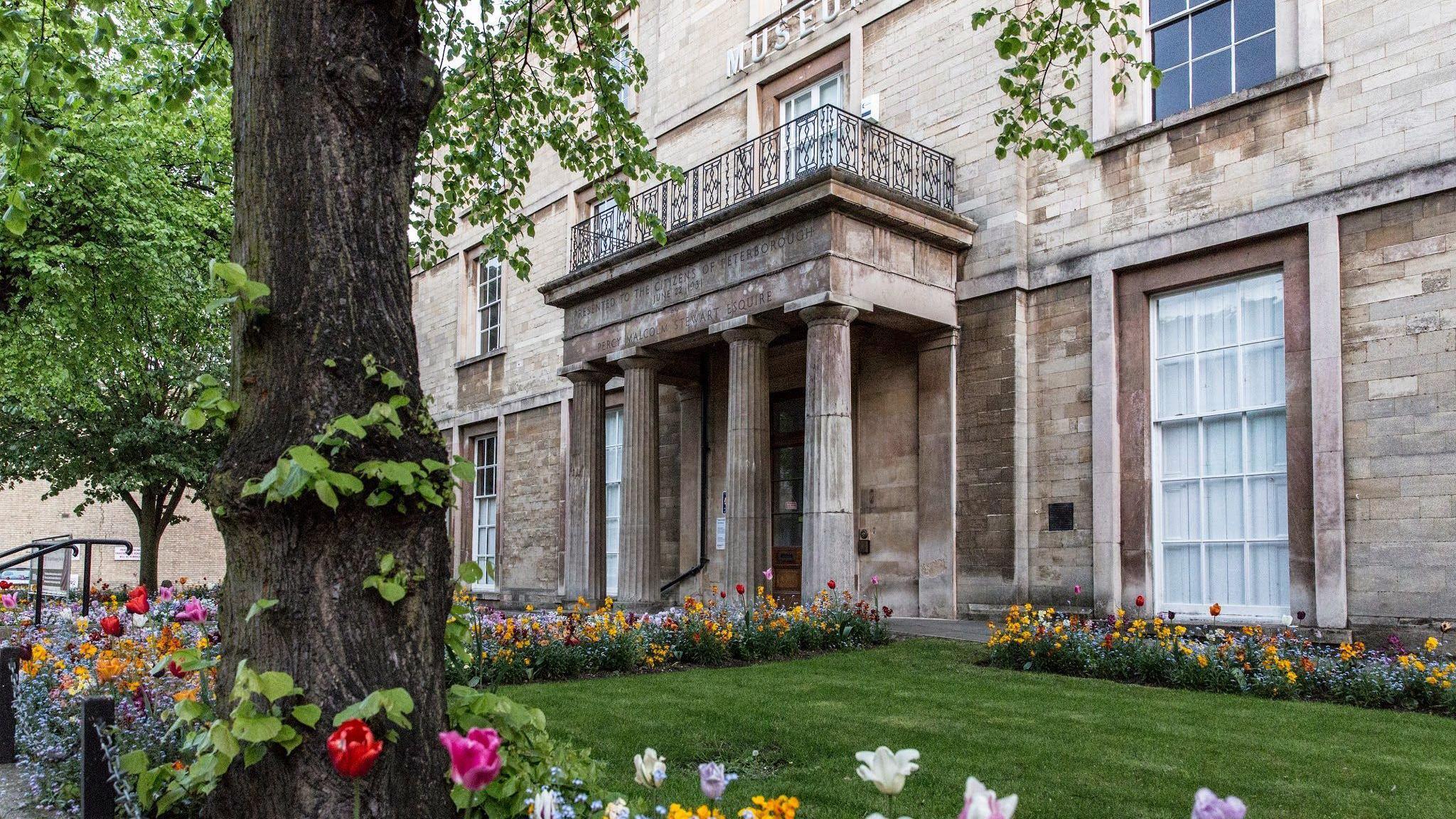How a tiny village grew into a huge luxury destination
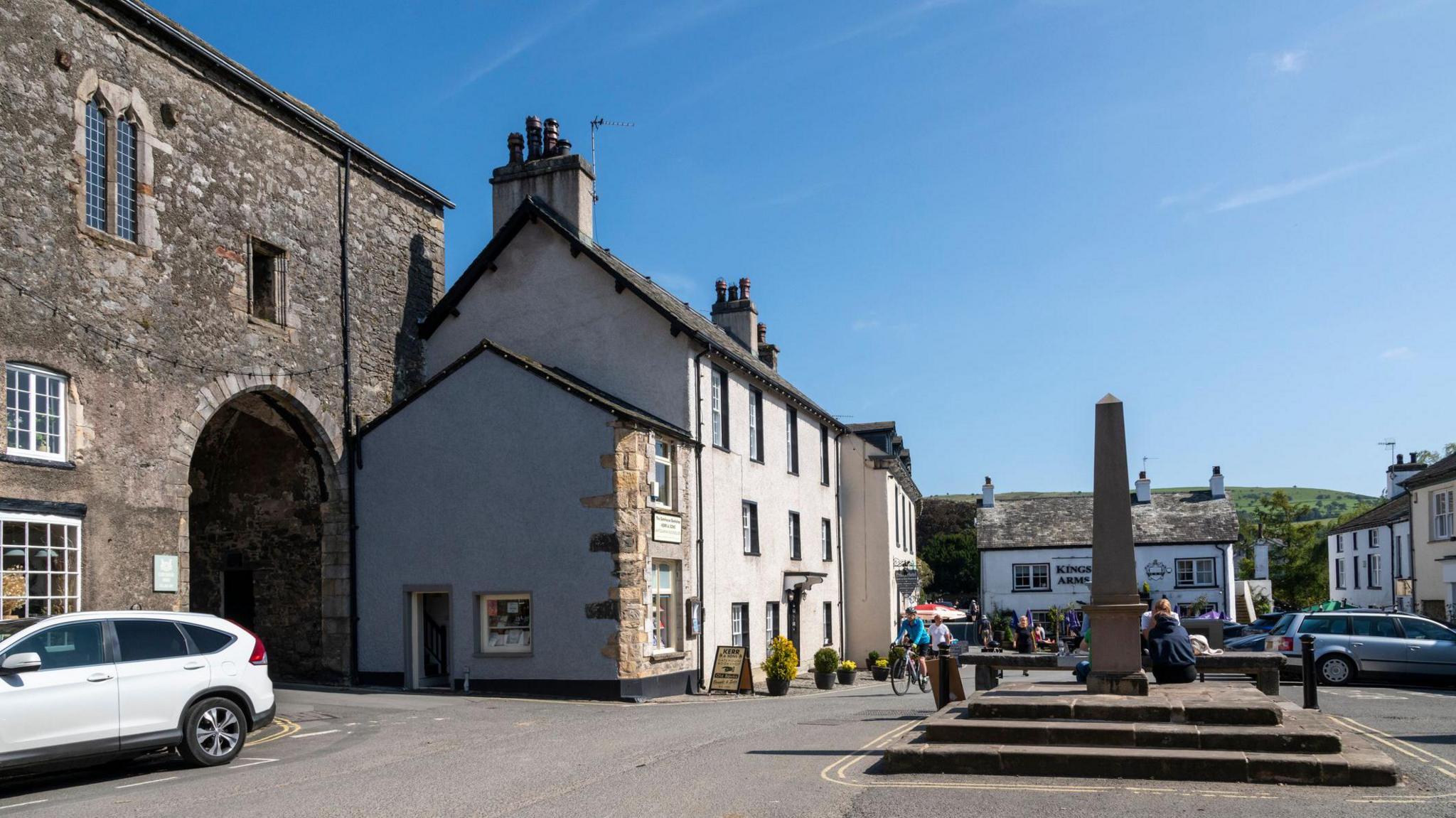
The small village of Cartmel has been described as "captivating"
- Published
Long known as the home of sticky toffee pudding, Cartmel in Cumbria is experiencing its own sweet taste of success. Just how did this small village on the edge of the Lake District establish itself as one of country's leading luxury destinations?
Some 60 years ago, the handful of amenities here included a petrol station and a school.
And while visitors have always been attracted to Cartmel for its 800-year-old priory, its racecourse and its famous dessert, people living here have seen a shift from seasonal influx to year-round flow.
About 20 years ago, it became home to chef Simon Rogan's three Michelin-starred restaurant L'Enclume which, coupled with an ever-growing interest in the Lake District, has shaped the village's reputation.
"Now we're getting a constant stream of tourism which never used to happen," says resident Barry Dean, who also represents the area on Allithwaite and Cartmel Parish Council.
"It has stimulated other trade as well."
The Lower Allithwaite parish, of which Cartmel is a part, has fewer than 2,000 residents, according to ONS figures, and Dean says about 400 people live in Cartmel itself.
Yet within a couple of miles of the village sit dozens of hotels, guesthouses and self-catering units, many aiming for the higher end of the market. And more are coming.
While the tourism trade brings important employment opportunities, it all comes with its challenges.
"We had a massive event - Christmas in Cartmel - but it was so popular we were inundated," Dean says.
"Previously that would have attracted local people [but] it was so over-attended we couldn't do it this year."
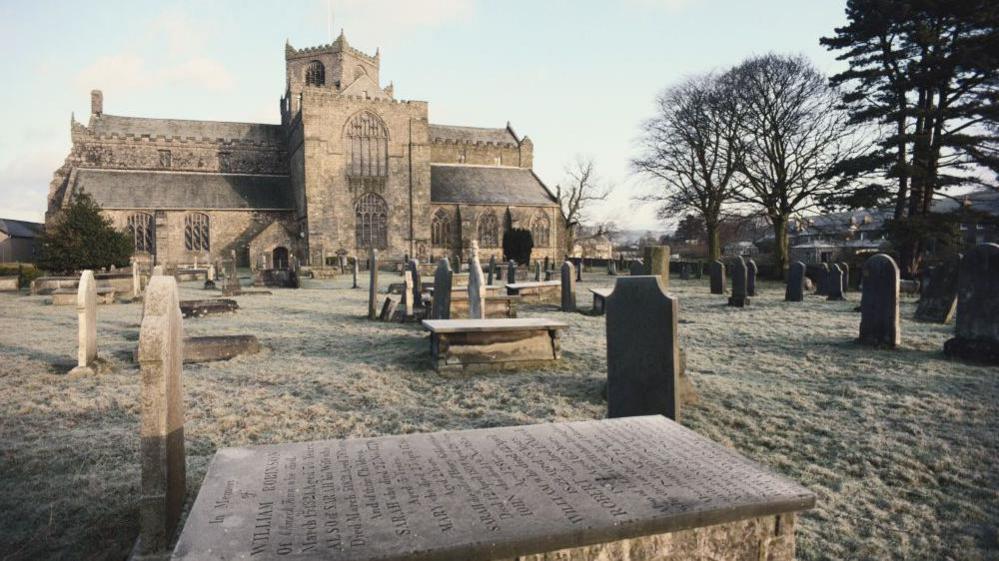
Cartmel is known for its 800-year-old priory
Dean says while the success of "brand Cartmel" is great for the village, it also drives investment from second-home owners and real estate investors, meaning fewer local people are able to buy properties here.
"The downside is it's driven out a lot of people who looked after the village, the doers who got involved in the community."
Jenny Boak, 62, has always lived in this corner of Cumbria and remembers the days when Cartmel was a sleepy village.
"All you needed to come to Cartmel for was to go to school," explains Boak, who now sits as a Liberal Democrat on Westmorland and Furness Council.
"The growth has all been organic, it has come from enterprise and employment has gone up."
While there are many holiday homes in and around its main square, Boak is keen to stress the area at large has managed to secure social housing.
She claims a "strong neighbourhood plan" put in place by the council, which identifies areas that can be developed, ensures a "balance" between tourism and community.
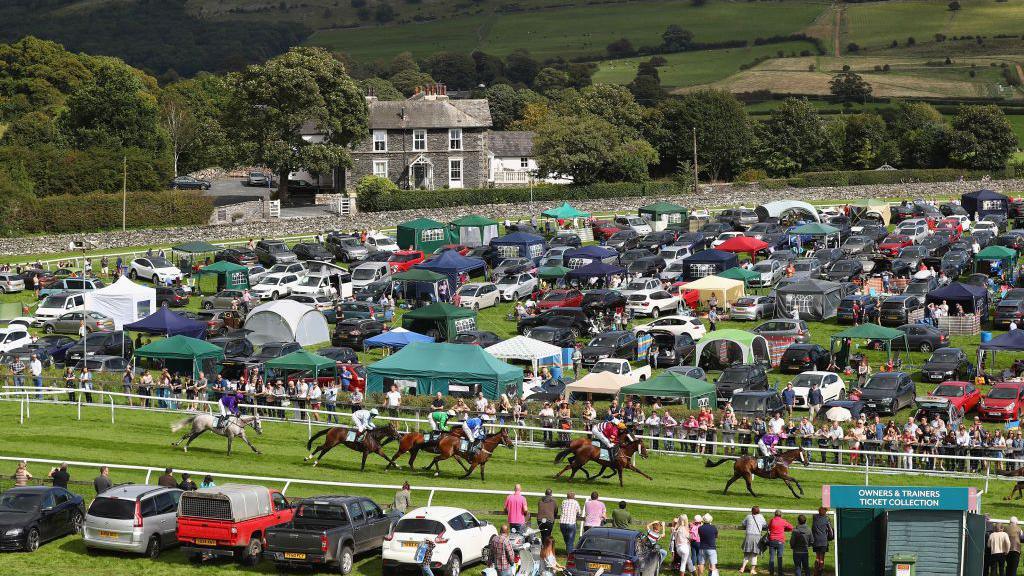
Cartmel Racecourse attracts many tourists
Newlyweds Lauren and Greg Foggo are the latest investors to be attracted to Cartmel, having purchased the village's multimillion-pound old grammar school which is to become a hotel and wedding venue.
"Cartmel seems to be a really luxury destination," says Mrs Foggo.
"Obviously you've got L'Enclume and [sister restaurant] Rogan and Co, you've got the racecourse, you've got lovely pubs that all seem to work well together as a community."
The couple - who have never worked in the hotel business - received the news their purchase of the Grade II listed 1790 building had gone through just 10 days after tying the knot in October.
They are preparing to open in the new year.
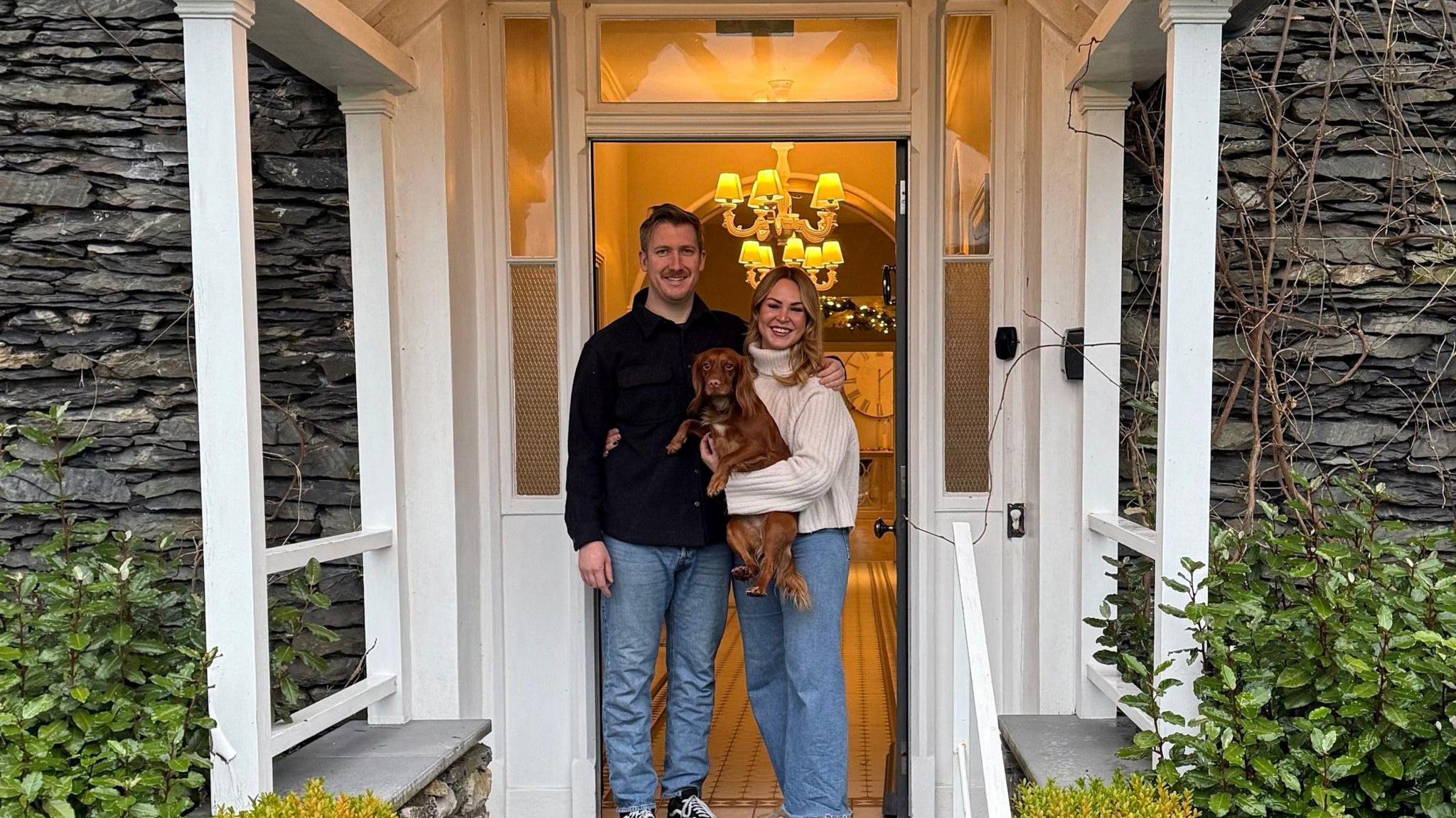
Lauren and Gregg Foggo are new to the hotel business
Mrs Foggo's parents bought a property near Cartmel and fell in love with the area, she explains, and that is what attracted them here.
Christie & Co, the company that dealt with the sale, said the previous owners carried out extensive renovations but wanted to sell the property to retire.
"The feedback has been that the local community are happy that it's going to be a hotel again, that it's going to bring more people to the village and hopefully we can bring something back to them as well," the 28-year-old says.
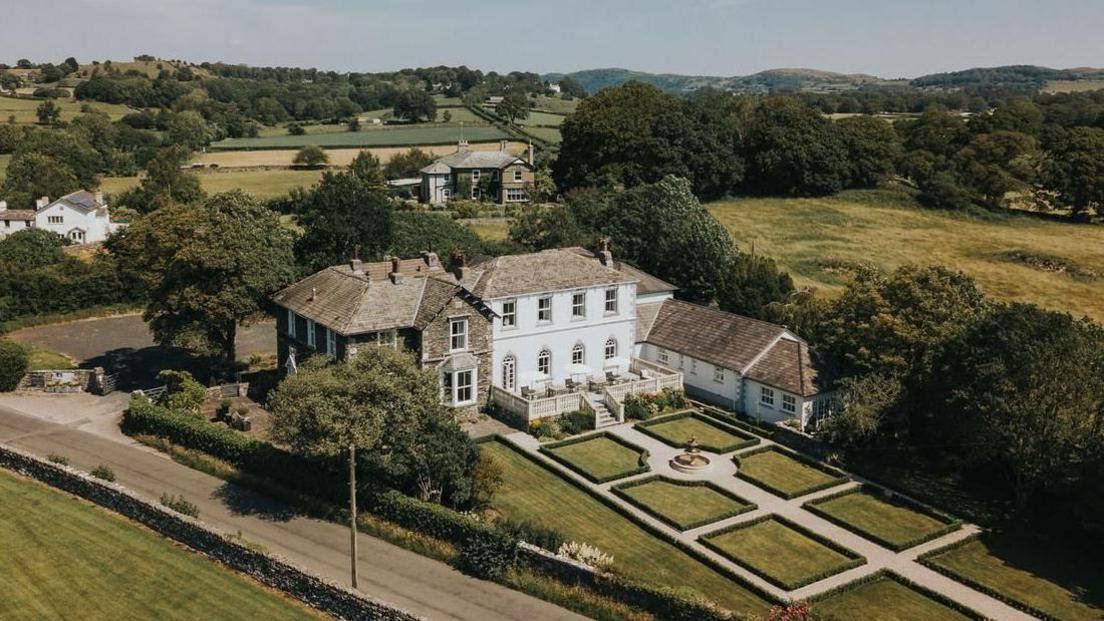
The Grade II listed old grammar school dates back to the late 18th Century
Although the cost of living crisis continues to affect many sectors, Cartmel continues to attract wealth.
Jim Walker, president of Cumbria Tourism, says: "We've found post-pandemic that there is still strong demand among the more expensive, higher value end of the market."
As for Cartmel's success, he puts it down to its "buoyant" offering and he does not think its charm will stop attracting visitors any time soon.
"It has become quite a centre of excellence in terms of super experience for visitors.
"It's a real community, it's very vibrant, but it's worked hard to earn its place with some fantastic culinary offers for both visitors and the local people."
Follow BBC Cumbria on X, external, Facebook, external, Nextdoor and Instagram, external. Send your story ideas to northeastandcumbria@bbc.co.uk.
Related topics
- Published7 November 2024
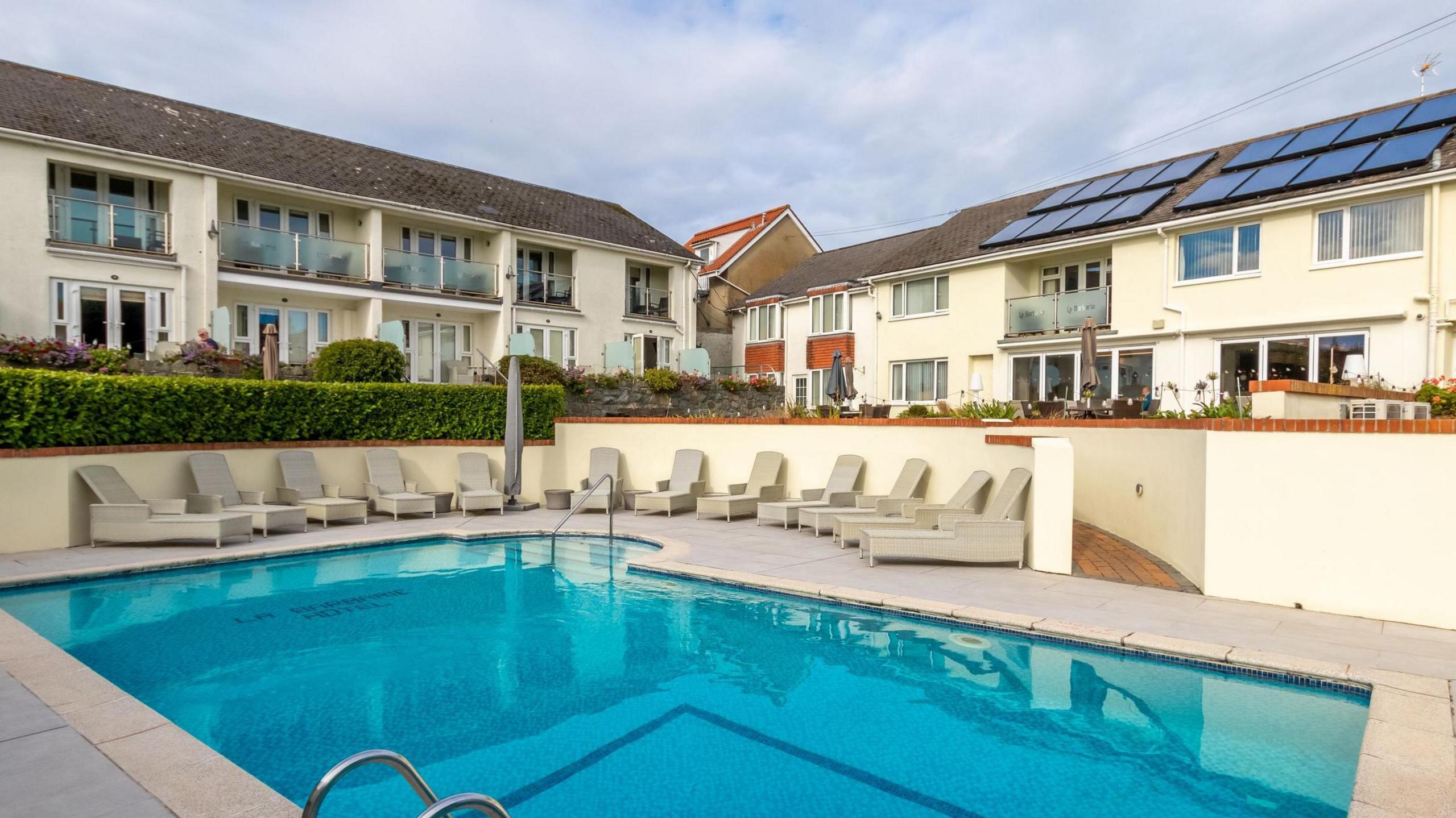
- Published25 October 2024
